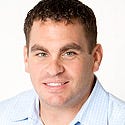OTT: Learn From Telco's Past to Shape Future
Telcos have a few lessons to impart about their networks, service quality and customer experience that OTT players should heed.
September 26, 2013

Listen up, over-the-top communications providers: Those who don't learn from the past are fated to repeat it.
OTT players such as WhatsApp are presented as representative of the telecom industry's bright, shiny future. But they have a way to go before they can truly replace the incumbents. Of the hundreds of millions telephone numbers in use in the US, only a small fraction are used in OTT applications.
Here is my view of the telecom industry's strongest assets and why OTT providers should take note. (See: What OTT Can Learn From Big Telecom.)
Don't take the network for granted
At its core, OTT's goal is to disrupt traditional telecom operations, but OTT applications and services depend on the traditional telecom providers' networks. Do OTT providers really want to disrupt the foundation on which their business model relies?
Telecoms have spent a fortune to build and maintain interoperable networks. The companies responsible for these networks have been around for many years and will be around for many years to come. Do not take the network -- or the companies that control it -- for granted.
With this competitive and co-creative relationship in mind, let's look to the companies that got our industry where it is today. The features and capabilities that have brought telecommunications to where it is today should act as a foundation for any OTT provider looking to go beyond disruption to achieve long-term growth and success.
Quality comes first
As anyone who has experienced dropped packets during a call or delays in SMS delivery can attest, quality really does matter. It is one thing to make a mental justification around a lack of network quality because you are using a free service, but after a point, that argument starts to ring hollow. Whether you're texting "Happy birthday" to an aunt across town or hosting a teleconference with a client overseas, if the quality is not there, your OTT app will not replace traditional telecoms. It will only supplement them.
People expect voice and messaging to work, and they get angry when they do not. Know going in that this is your end users' expectation, and that anything less will be subpar.
People care about their device more than they do your app
Your app might be the coolest thing on the planet, but if it doesn't work well for people, or if it is not available on their device of choice, then they won't use it. Make sure your app works not only across networks, but also seamlessly across devices.
All numbers are not created equal
Telephone numbers come from a shared pool. A clean number is one that will not hurt your business. A dirty number is one that will. A dirty number can be one that recently came back into inventory but may still have residual reference to the previous owner -- a defunct auto repair shop in Poughkeepsie with an active website, for example. Or it could be a number used for fraudulent purposes. Such dirty numbers need time to get clean. Number management is how this happens, and if your app relies on numbers, making sure yours are clean is incredibly important.
If OTT providers can build their business with these basic tenets, then their impact on telecoms will be long-lasting and profitable.
— Steve Leonard, executive vice president and general manager, Bandwidth.com
About the Author(s)
You May Also Like




_International_Software_Products.jpeg?width=300&auto=webp&quality=80&disable=upscale)







